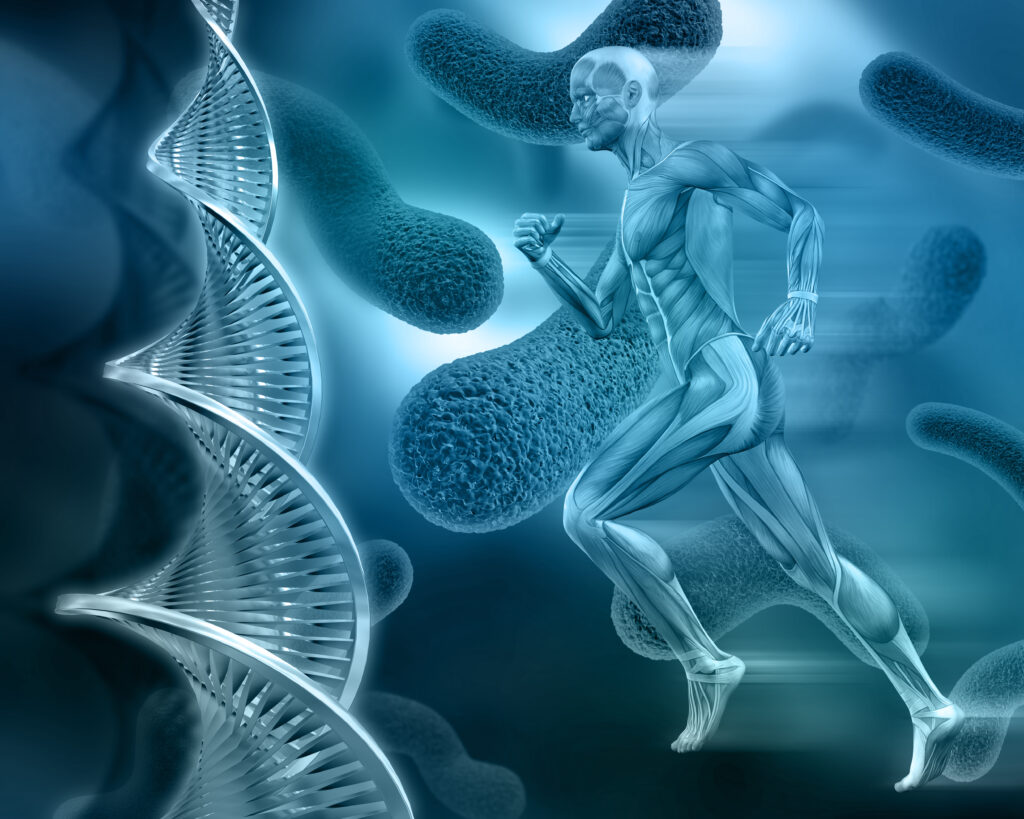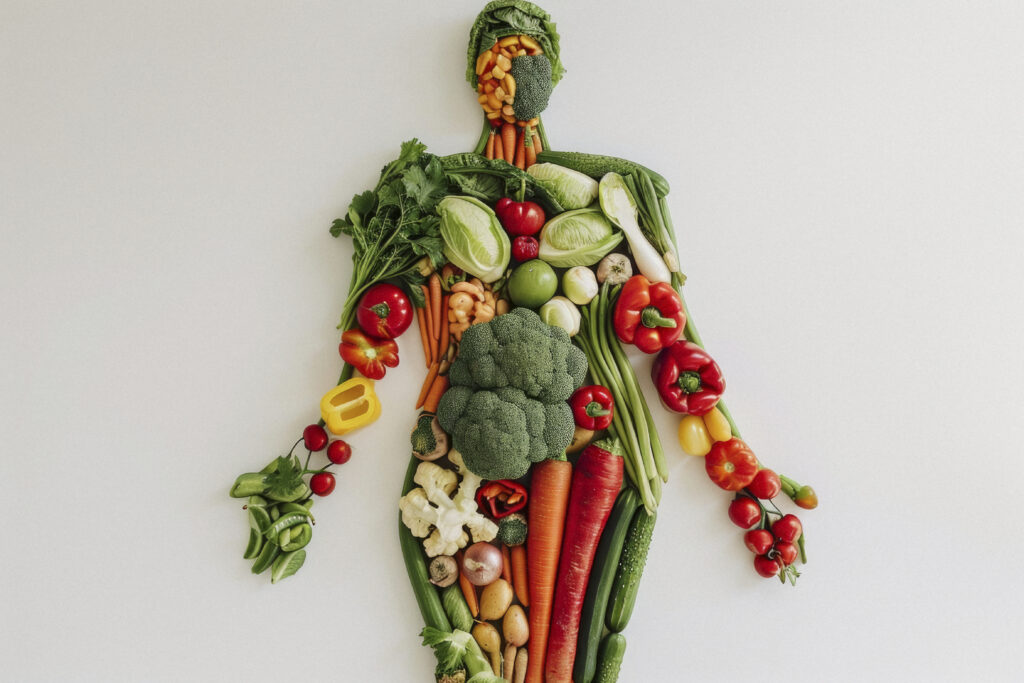Metabolism fuels your body, keeping you active and capable of handling daily activities with ease. Understanding how it works and learning how to boost it can enhance both your health and energy. Here, you’ll discover proven and effective methods to boost your metabolism the natural way.
Table of Contents
Understanding Metabolism
It includes the essential chemical processes inside your body that support life and ensure everything runs smoothly. These processes convert food into energy, supporting functions like breathing, circulation, and cell repair. It’s the pace at which your body converts calories into usable energy for daily functions.
Several factors influence your metabolic rate:
- Basal Metabolic Rate (BMR) is the number of calories your body needs at rest to perform vital tasks.
- Physical Activity: Exercise increases calorie expenditure.
- The Thermic Effect of Food (TEF) is the energy used to digest and process what you eat.
Understanding these components is crucial for managing it effectively.

Factors Influencing Metabolism
Age and Metabolism
Muscle Mass and Metabolism
Hormones and Metabolism
Hormonal imbalances, such as those involving thyroid hormones, can significantly impact it. Metabolic functions may slow with thyroid issues like hypothyroidism, causing tiredness and weight increase. Regular check-ups help ensure your hormones stay balanced for optimal metabolism.
The Impact of Genetics on Metabolism
Your inherited genes largely influence how fast or slow it works. Certain people are born with genes that help them burn energy more quickly. Though genetics can’t be altered, knowing them helps shape your fitness and nutrition plan. Even if you have a slower metabolism by birth, lifestyle changes like exercise, balanced nutrition, and sleep can still make a big difference.
Also Read: Setting Up Gym at Home
Nutrition and Metabolism
Metabolism-Boosting Foods
- Protein-Rich Foods: Consuming protein increases TEF, requiring more energy for digestion. Good protein sources are foods like poultry, eggs, beans, dairy, and nuts.
- Spicy Foods: Ingredients like capsaicin in chili peppers can temporarily boost it by increasing body temperature.
- Green Tea and Coffee: Both contain caffeine and antioxidants that may enhance metabolic rate.
Importance of Hydration
Staying hydrated is vital for optimal metabolic function. Your body needs water to carry out metabolic chemical reactions effectively. Cold water might slightly increase calorie use since your body heats it before absorption.
Meal Timing and Frequency
Having meals consistently helps manage hunger and keep energy steady throughout the day. Some studies suggest that smaller, frequent meals may keep it active, though individual responses can vary.
Also Read: Dalchini (Cinnamon)

Lifestyle Changes to Enhance Metabolism
Regular Physical Activity
Incorporating both aerobic exercises and strength training can significantly boost it. High-Intensity Interval Training (HIIT) is particularly effective, as it increases calorie burn even after the workout is completed.
Quality Sleep
Stress Management
Prolonged stress boosts cortisol, which can reduce metabolic speed and lead to fat storage. Stress relief methods such as yoga, meditation, and breathing techniques are helpful for mental balance.
Also Read: Anjeer Benefits (Figs)
Supplements and Metabolism
Natural Supplements
Caution with Supplements
Always consult your doctor before using any supplements. Certain supplements may be unsafe or interfere with medicines, so use them carefully.
Common Myths About Metabolism
Myth: Eating late at night slows it.
Fact: What truly affects weight is your overall calorie balance, not when you eat.
Myth: Certain foods drastically boost it.
Fact: While some foods can slightly increase metabolic rate, no food alone will cause significant weight loss.
Myth: Thin people have faster metabolisms.
Fact: Metabolic rate varies among individuals, regardless of body size.
Also Read: Omega-3 Breakthrough
Metabolism and Gender Differences
The higher proportion of lean muscle tissue in males contributes to a greater caloric expenditure compared to females. Hormonal differences also play a role in how energy is processed. However, both men and women can optimize it with the same healthy strategies. Customizing workouts and diets to individual needs can yield better results.
The Role of Gut Health in Metabolism
A healthy gut supports better digestion and nutrient uptake, aiding metabolic health. Beneficial microbes aid in digestion and help lower inflammation in the body. Fermented foods like yogurt and kimchi, along with fiber-rich vegetables, promote a balanced gut. Supporting gut health can have a positive impact on your metabolic function.
Environmental Factors That Affect Metabolism
Climate, pollution, and even altitude can influence it. Colder climates may slightly increase calorie burn as your body works to stay warm. Air pollution and toxins, on the other hand, may impair hormonal balance. Being mindful of your environment and minimizing exposure to pollutants helps support metabolic wellness.
Also Read: Sugar-Free Life
FAQs
Can certain foods really boost it?
Certain foods may raise it a bit, but the impact is generally small. Eating well and exercising routinely is the best strategy for improving it.
How does exercise influence metabolic rate?
Lifting weights and doing HIIT help build muscle and boost calorie burning for a better metabolism.
Can you improve or revive a slow metabolism through natural methods?
Yes—consistent routines such as working out, eating right, getting good sleep, and reducing stress can steadily improve it.
Conclusion
Boosting your metabolism involves a combination of dietary choices, physical activity, sleep, and stress management. By implementing these insider secrets, you can enhance your energy levels and overall well-being. Long-term and meaningful results come from steady and consistent effort.
Important: This article provides general insight and isn’t intended as a substitute for expert medical advice. For personal health concerns, always speak with your doctor.
Also Read: 14 Herbs that Glow You Naturally










